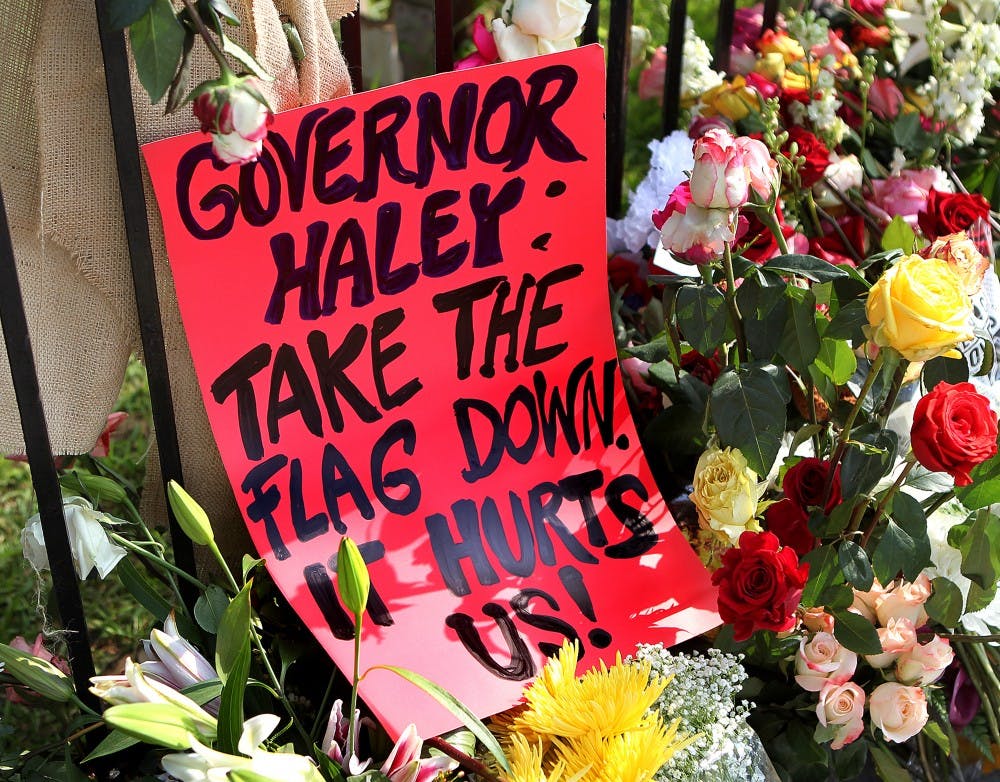In 1962, an all-white South Carolina legislature decided to raise the symbol of a slave state to a place of prominence above its copper dome.
Only now, after the murder of innocent people, is the prospect of removing it from government property seriously being considered.
Governor Nikki Haley gave a necessary speech endorsing the flag’s removal on Monday and many of the worthless cowards currently running for president (keeping their true convictions quiet) immediately followed suit. Whether or not the legislature will agree with them remains to be seen.
Quite simply, the flag needs to be taken down. This seems obvious. Here are a few arguments against taking it down and why they aren't worth thinking about.
Some say that the flag on the the state capitals' lawn is "not the same flag.” While the “stars and bars” Battle Flag of Northern Virginia may never have been the official flag of Confederacy, it has now come to represent the whole of the Confederacy and the pre-war southern U.S. This is nitpicking.
Others defend the flag’s position because it represents a uniquely southern tradition of states’ rights and liberty from federal control.
Any complete response to this must include the following: any honor that has its roots in human suffering is no honor. Any heritage built on slavery is a heritage not worth having. (If there is any pride one can have in being a southerner, then it must come from its post-war literature. There is more moral worth in a paragraph of Mark Twain than in any “heritage” formed and carried on by a society built on murder.)
Still others say that taking down the flag is a way of trying to brush the state’s sordid past under the rug.
By taking down the flag, the state is not trying to erase its past. It is taking a step to disown it, while keeping the modern consequences of romanticizing a racist system in full view.
Forgetting the past will not work. Pretending that we no longer "see" race will not work. Silence will not work.
We must stare our history in the face, forever. We must memorize its scars. If we don’t, we open ourselves up to the idea that everything is all right.
Nine people are dead. Seats are empty, clothes unworn. There’s blood in an old Charleston church. Everything is not all right. We have not looked at history hard enough.
Elie Wiesel, a Holocaust survivor and famous writer, once gave a speech in the 1980s to the youth of West Germany, who at that time were only one or two generations separated from their Nazi forebears.
Wiesel told them that they had an obligation to meditate on the horrors their parents and grandparents were responsible for during the Holocaust, in the same way that all young Jews are told to remember the suffering of its victims.
“I have neither the desire nor the authority to judge today’s generation for the unspeakable crimes committed by the generation of Hitler,” he said. “But we may — and we must — hold it responsible, not for the past, but for the way it remembers the past.”
This, too, is our obligation.

